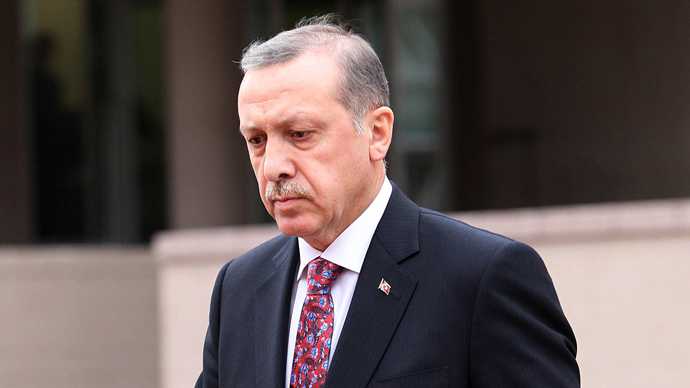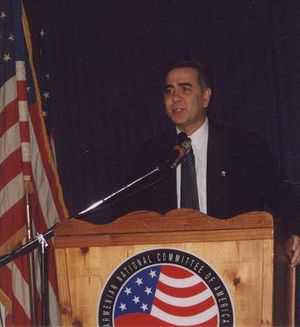|
Hubble-Bubble
 Melik Kaylan, 10.23.09, 12:01 AM ET Turkey and Armenia are about to restore diplomatic relations. At the very least, they signed a landmark agreement to do so on Oct. 10 in Switzerland–after some tense last-minute wrangling in a Zurich hotel room with Hillary Clinton mediating. An astonishing development. A marvel to see in one’s lifetime, not unlike the fall of the Soviet Union. Two ancient peoples in eternal enmity. Sounds utterly implausible. Ancient hatreds never go away. That, at any rate, is the narrative–an arguably fraudulent one–that we’ve been fed for several generations. In fact, depending on how you calculate it, Turks and Armenians lived peaceably together for almost 600 years–or almost 900 years–until the 20th century. The calculation depends on whether you date their time together from the Seljuks or the later Ottomans–and where you end the timeline. Either way, it was an epoch or two, possibly an unprecedented achievement. Then, according to the prevailing interpretation, the Turks turned suddenly on their cheek-by-jowl neighbors, unprovoked, and wished to obliterate them from the Earth entirely as a people. It’s possible. Strange things have happened in the annals of genocide, though not after that long a duration of mutual tolerance. If so, why then? What changed?
Here you enter into difficult terrain. Because you can easily slip into an alternate viewpoint, one that goes something like this: Turks and Armenians lived in peace until Czarist Russia began to move southward down the Caucasus, purging Muslims downward into Turkish territory–throughout the 19th century. All those fiery Daghestanis, Chechens, Abkhaz, Kurds. Many ended up in Ottoman lands, some say half a million. At one point, Russia actually occupied a whole swath of Turkey, including the provincial capital of Kars, for several decades until World War I ended. The Russians did their conquering explicitly as a Christian Crusade, claiming the complicity of all Eastern Christians (including Armenians) in that part of Turkey, an area seething with displaced Caucasus Muslims and Muslim Kurds. In short, if you are curious about a proximate cause for catastrophic bloodshed, look no further than Russkie provocation–a plausible scenario considering their conduct right up to the present in Georgia–of stirring one ethnicity against another for imperial ends.
Discretion being the better part of valor, let us leave the historical dispute delicately hanging there for professional historians to sort out. The present is complicated enough. What happens if Turkey and Armenia bury the hatchet? Azerbaijan gets upset, for sure, and Azeris are close kin to the Turks. Why does that matter to America and the West? The Armenians carved out a slice of Azerbaijan in a secessionist war with Russian help during the post-Soviet chaos in the Caucasus. Azeris want it back. Armenians wish to keep it. Azeris don’t want Turkey to make peace with Armenia. Azerbaijan is a critical source of non-Middle Eastern oil to the West via pipeline through Turkey. Azeri oil will help liberate Europe from Moscow’s oil. No wonder foreign minister Sergei Lavrov attended the signing ceremony in Switzerland: Russia would benefit from driving a wedge between Turkey and Azerbaijan. The Azeris are already threatening to re-route their oil through Russia. So why is Turkey ready to alienate Azerbaijan?
As many have observed, Turkey is pushing a neo-Ottoman strategic vision under Prime Minister Erdogan and his busybody foreign minister Ahmet Davutoglu. Until their collapse in the 20th century, the Ottomans pursued a centuries-long game of diplomatic promiscuity with other world powers, allowing Venetians and Genoese trading rights early on, giving Sephardic Jews a new home after their expulsion from Spain, letting the British help them against the Czars and against Napoleon, inviting the Russians and Hapsburgs to compete over privileges in Ottoman lands.
As the Ottomans declined militarily they used the country’s strategic position diplomatically to stay afloat. Under the more insular nationalist republic of Ataturk, Turkey allied exclusively with NATO and stayed out of regional engagement. Now Ankara is making friends with all its neighbors. Suddenly, the minefields along the Syrian border are being lifted and Syrians may enter Turkey with minimal red tape. Georgians have similar status. Baghdad and Ankara have just signed a slew of deals involving water, oil and trade. Greece and Turkey are friendlier than they’ve been in, say, 200 years with Greece actually backing Turkey’s candidacy to the E.U. Natural gas comes in from Russia while Turkish construction companies are doing more than anyone to build infrastructure across the Russian Federation. In short, a neo-Ottoman approach means that Ankara is allowing all the neighbor countries to gain so much benefit from Turkey’s evenhandedness that all are invested in keeping the country stable and prosperous.
There are side benefits too. A Syria dependent on Turkey may become less dependent on Iran economically. Ankara’s deals with Baghdad show Iraq’s Kurds that hostility to Turkey will only leave them out of the loop economically. In the past, almost all neighboring capitals had a hand in aiding the Kurdish insurrection within Turkey–Moscow, Athens, Damascus, Baghdad and all the Iron Curtain belt nearby played that game. These days only the E.U. and the U.S. are pushing the issue of Kurdish rights. Prime Minister Erdogan calculates that as Turkey gains increasing leverage through befriending one and all indiscriminately while shifting an inch this way or that (such as publicly snubbing Israel), even the U.S. and E.U. will have to ease pressures or risk pushing Ankara further into the arms of rivals. The Erdogan government may calculate that Azerbaijan, too, will come around and realize that it will only lose from a rift with the Turks as the Azeris can, in reaction to the Armenia demarche, only befriend the Russian bear–and only for a while before it swallows them whole.
Meantime, Ankara is going about eradicating the leverage of outside powers over Turkey over such matters as ethnic rights. The Kurds now have broadcasts in Kurdish. Armenia may finally have a partner other than Russia to trade with–that’s a lot of incentive. It’s a lot of incentive for the U.S. to climb on board too. Turkish-Armenian amity in the region will soon de-fang the various genocide bills so beloved of the Armenian diaspora.
All this comes under the rubric of “neo-Ottoman” for another reason. The Ottomans held Islam’s Caliphate for five centuries, and it was under Islamic laws that they extended rights to religious minorities while ostensibly treating all Muslims as equals with no preference to ethnicity. Erdogan’s slide toward Islamist inclusiveness ironically stirs a beneficent echo in the hearts of Armenians in the region. They have flourished relatively unhindered in the Middle East under countries hostile to the West, such as Syria and Iran. They’ve had no problem living under anti-Western regimes such as the Soviet Union. Their historical sense of identity is anchored in ambivalence toward the West going way back to their doomed alliance with the Persians against Roman power. Throughout the Middle Ages they identified with Eastern Christianity against the Vatican. The Armenian patriarch showed no friendship toward proselytizing Protestant missionaries in the Ottoman era. In short, Armenians of the region feel no discomfort with Mid-eastern traditions or Islamization, and certainly not Erdogan’s apparently moderate version of it.
One can only dream and hope for the day when Armenians, like Greeks do now, interact with Turkey in large numbers and perhaps even settle back into their interrupted history there. But that it happens under an Islamizing umbrella–and there’s the rub. For it’s not at all clear that once you drift in that direction, there can be any way back–that is, short of a Kemalist or, much worse, a Soviet-style enforced secularism. Erdogan’s strategy of giving all comers a stake in the stability of Turkey also anchors them in Turkey’s renewed Islamist pull. Israel is unlikely to benefit from this, except perhaps in the leverage it gives Turkey to negotiate for Israel with Islamic countries. The Europeans will soon lose all purchase on Turkey’s cultural and political center of gravity as the Turks learn that money from non-Western allies outdoes any expected benefits from the E.U.
Erdogan’s policies are neo-Ottoman in this way too: in decline, Ottoman state policy, the Sultan or the Sublime Porte in Western parlance, was open to the influence of the highest bidder outside or inside the country. Everyone may benefit in the short term, especially the Turks with their new-found diplomatic clout. But in the long term, that kind of polity cannot be transparent. It can be enlightened in all sorts of ways except a fully Westernized one. Erdogan’s government is already swallowing up independent news media a la Putin. Backroom deals fill his party’s coffers and reward party loyalists at all levels of the economy. This kind of thing went on aplenty under the secularists too, but you can manifestly turn back from secularism, whereas Islamism looks like a one-way street and derives larger financial benefits from Saudi and Gulf investment. As money flows in–the IMF ranked Turkey as the world’s 17th-largest economy last year–the Turks can easily leave off struggling for their own freedoms.
Republican Turkey has offered the single example, thus far, of a Muslim country living under Western democratic laws, however clunkily. But Islamic nostalgia is a powerful and insidious force. What people forget is that, from the 1400s onward, Turkey was as much based in Europe as in Asia. The Turks do not harbor a fundamentally eastern identity as many in the West mistakenly believe. The U.S. and E.U. can still keep the Turks in their camp. But first they must want to do so. And finally, they must start bidding higher.
Melik Kaylan, a writer based in New York, writes a weekly column for Forbes. His story “Georgia In The Time of Misha” is featured in The Best American Travel Writing 2008.
Read more Forbes Opinions here.
|
__________________________________________________






